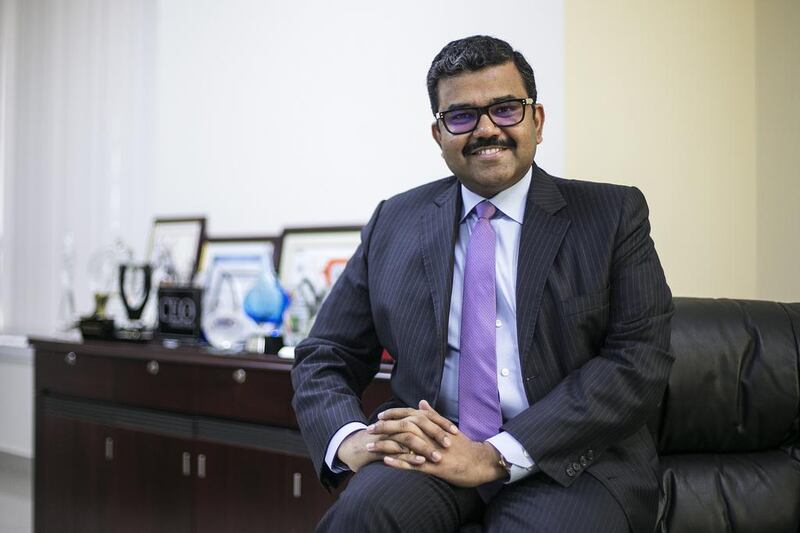Promoth Manghat is chief executive of UAE Exchange, the US$30 billion a year money exchange founded in 1980 by Abu Dhabi-based pharmacist turned businessman B R Shetty. Mr Manghat, 39, who started out as a chartered accountant in Kochi in his native Kerala, India, came to Abu Dhabi in 2003 and worked his way through the UAE Exchange ranks to become chief executive two years ago.
How did your upbringing shape your attitude towards money?
I grew up in a joint family, as we say in India, with uncles and aunts, etc. My father was into construction and farming. When you are involved in agriculture and farming, one of the traits is the nature of preserving. You don’t do it just for this month or next; it’s always with long term in mind. You manage resources and time.
Are you a spender or saver?
I’m not a lavish spender. But I don’t live a stingy, miserable life. I try to get that balance. I buy a nice suit, a nice watch. I bought a Swiss one last year, on the Champs Elysées, at Bucherer.
What is your most cherished purchase?
I love watches. I bought a rose gold Rolex Oyster Perpetual Day-date. A watch is not just for showing the time, it has ornamental value. Plus I got it at a good price ... the euro was weak.
Have you ever had a month where you feared you could not pay the bills?
Oh, definitely, when I initially started my career. When you come from an extended family your earnings are not just for you but for others. Even after I qualified as an accountant. It’s good to go through that, to taste that difficulty and make ends meet.
Where do you save your money?
I take a category perspective: bank deposits, real estate in the UAE and in India and other parts. Also I have investments – saving for me is investment. And I invest in NGO activity, education and primary health care. It’s not about return for you alone. Jack Ma, [the founder of China’s internet conglomerate Alibaba], said that beyond a certain point the money you have is not yours. So I’m funding a primary health care hospital and a tribal school in Nemmara, [in his home district of Palakkad]. It is a mini-hospital, serving a community of about 100,000 people with an aspiration to make it into a speciality healthcare offering.
Do you prefer paying by credit card or in cash?
Card. I’m a person who believes that non-cash is a better mode of paying. Unless there is no other option than cash. It gives you a secure way of paying and you can track your spending.
What has been your best investment?
The one in my village, the healthcare facility. It gives you a sense of prime achievement, not only in terms of money but in terms of time and money. The master plan is to grow it into a 175-bed hospital with 40 to 50 doctors, maybe by the middle of this year. Now there are about eight doctors and it is day care only.
What do you most regret spending money on?
Sometimes you make some instant clothing spending choices, regretfully, like everyone else. I travel and when you travel a lot, you start missing family – I have a daughter, nine. You do a bit of retail therapy and then when you come home ...
What financial advice would you offer your younger self?
I have been groomed to live by my means. At the same time you don’t have to have a bad, unsatisfactory life, not too parsimonious.
Do you have a plan for the future?
The plan for the future is what I’m doing in my village. All my savings and my investments are not a decision for me alone; it involves the family, the extended family. Also, I’m trying to ensure optimal use of my time. Being a CEO comes first, as head of 16,000 employees.
What would you raid your savings account for?
To ensure my little one has a good education. My parents gave me an education much beyond what they could afford and that has really helped me in life – forget about career, but in life.
amcauley@thenational.ae
Follow The National's Business section on Twitter





